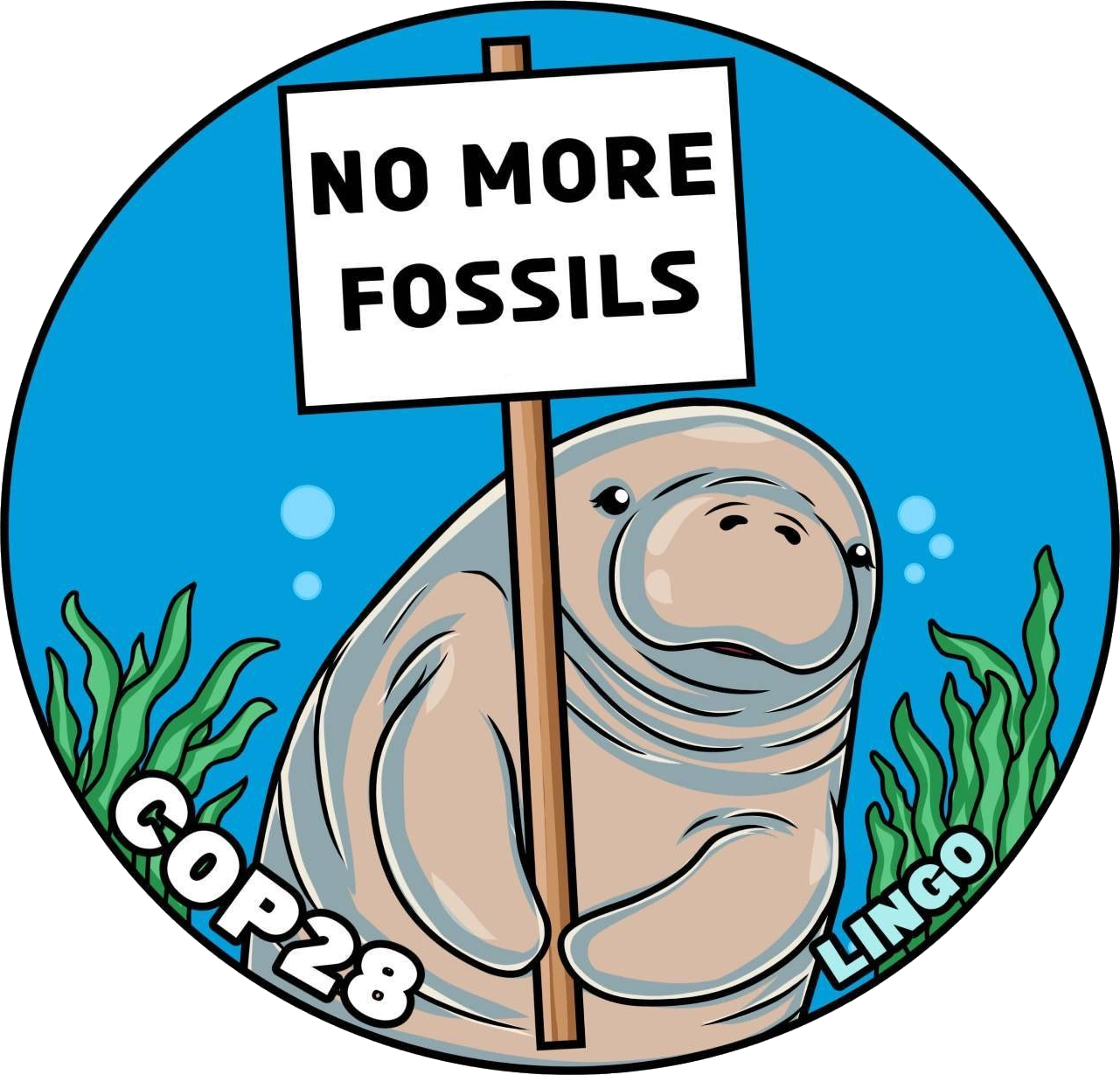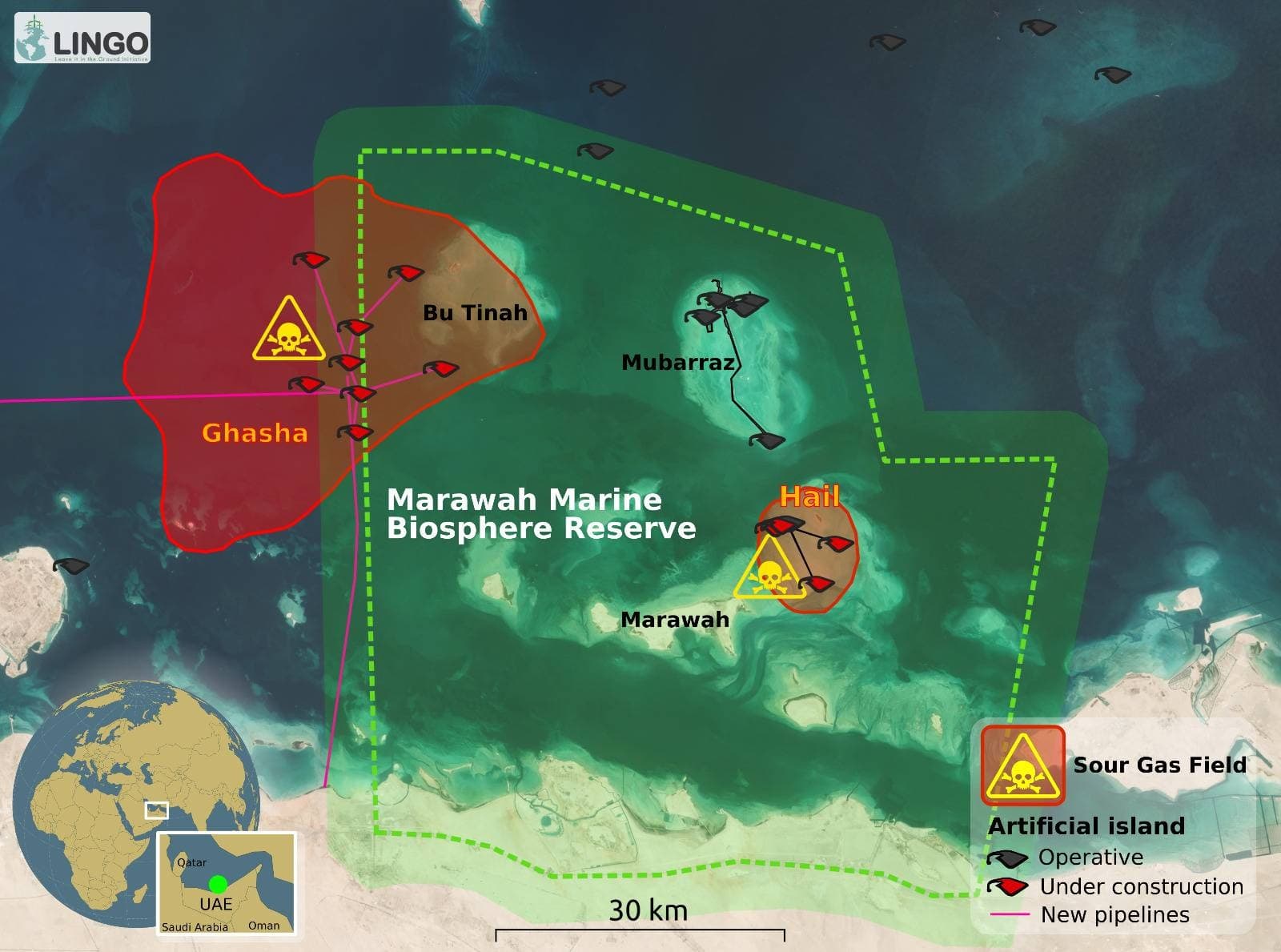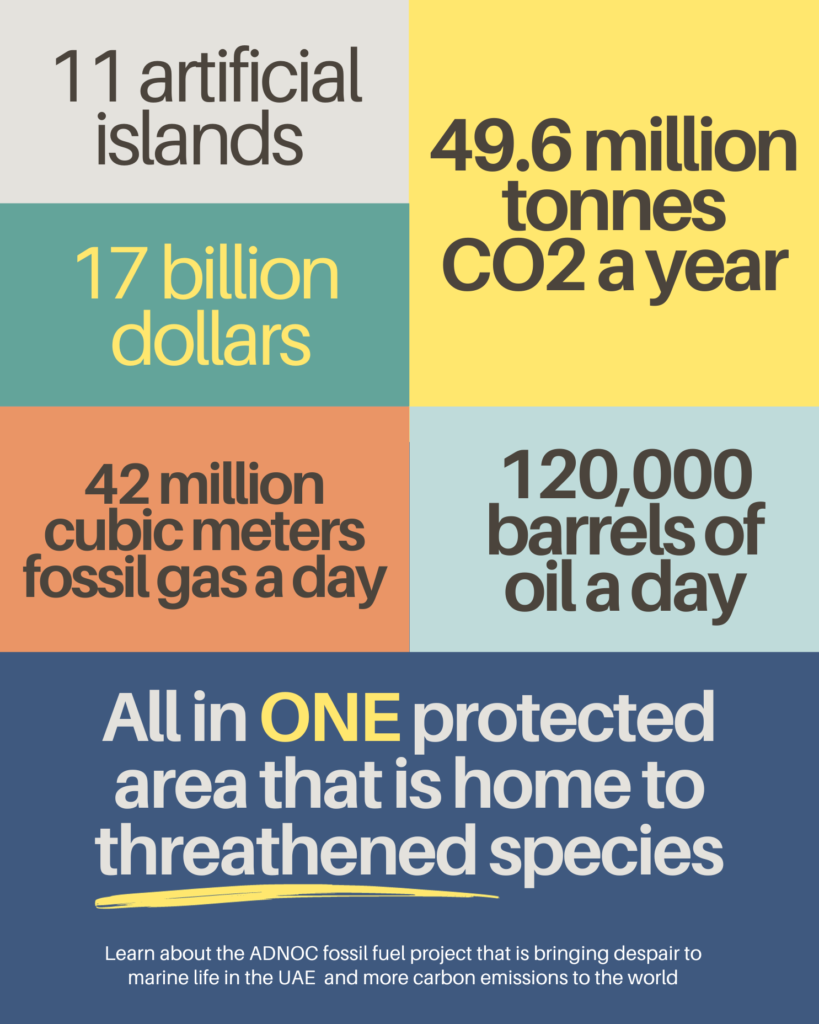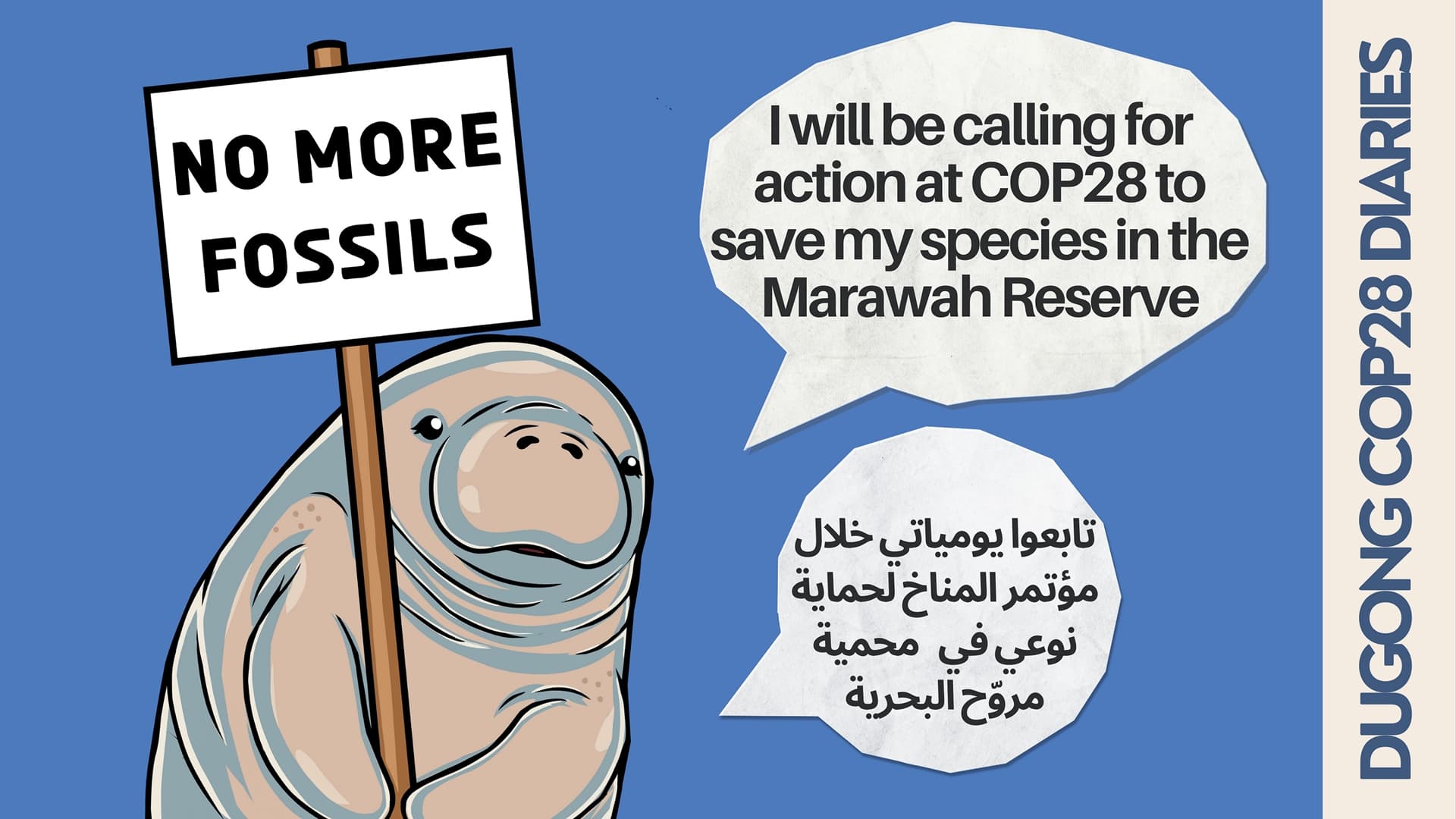
Dugongs against Fossil Fuels
A conflict of interests between a marine protected area and a new fossil gas extraction mega project.
Join the Friends of the Dugongs
We’re passionate about creating a sustainable, fossil-free future for everyone, and we would love to have you on board.
Where the Dugongs live
The UAE harbours the Dugongs in its seas, a giant yet gentle marine mammal.
Dugongs gave rise to the mythical mermaids and sirens in ancient times. They are called sea-cows for their grass-based diet and large size.
To protect them, the UAE has designated a large protected area off its coastline, the UNESCO Marawah Biosphere Reserve, a marine Protected Area according to UAE law.
Marawah also shelters other protected species such as turtles, dolphins and some of the most heat-resistant corals in the world.
But now, the oil and gas industry has struck!
The UAE wants to build a mega fossil gas extraction project in the Marawah reserve
The UAE - a world leader?
At the UN Climate Change conference in Dubai, the UAE government needs to facilitate negotiations of 198 countries, with the aim to take decisive action AGAINSTclimate change.
Dr Ahmed Al-Jaber, the President of UNFCCC COP28, is also the Managing Director and Group CEO of ADNOC, the UAE’s oil and gas company, ranked no 20 in the world.
This is an obvious conflict of interests. New extraction of oil and gas is the last thing this overheating planet needs. And in addition, this new fossil gas field threatens a unique ecosystem. COP28 will show the UAE´s determination in leading the world towards an effective energy transition.
Map of the Marawah Marine Biosphere Reserve

Ghasha gas extraction: incompatible with UAE climate and conservation leadership

11 artificial islands, oil and gas wells, a network of pipelines, shipping infrastructure, and power lines are needed to maintain this massive industrial operation.
Once completed, the project will extract fossil gas that causes emissions of over 49.6 million tonnes of CO2 per year.
To compare: the entire country of Ghana produces less than half of that, at just 20 million tons of CO2/year.
Even more business than usual?
As easy-to-extract fossil gas runs out, companies turn to “Sour Gas”
ADNOC has international partners who have invested in this mega gas project:
- ENI (Italy) holds 25%
- Wintershall Dea (Germany) holds 10%
- OMV (Austria) holds 5%
- Lukoil (Russia) holds 5%
ADNOC is not doing this alone. HERE are the international partner we have identified so far.
“As we lose nature, we lose ourselves”, Ms Razan Al-Mubarak says
Ms Al-Mubarak knows the risks of fossil gas and oil extraction to marine habitats – and to the Dugongs. And she knows the impact of emissions from this oil and gas megaproject.
She has long advocated for nature having a seat at the table, including at the climate change negotiations.
The IUCN World Conservation Congress called on
“… governments to prohibit environmentally damaging industrial activities and infrastructure development in all IUCN categories of protected area,…”(WCC 2016)

LINGO demands
- If the UAE wants to present itself as a trustworthy climate player, it needs to immediately cancel plans for drilling inside the Biosphere Reserve.
- The government should publish the Environmental Impact Assessment, which forms the basis for permits to extract from Marawah.
- The consortium of oil and gas companies should pause or withdraw from the project as it is in direct contravention of the Paris Agreement on climate change and international biodiversity conservation,
- We call on Razan Al-Mubarak and everyone concerned to try and help the Dugongs and the other threatened species in the Arabian Gulf and especially in the Marawah Biosphere Reserve.
